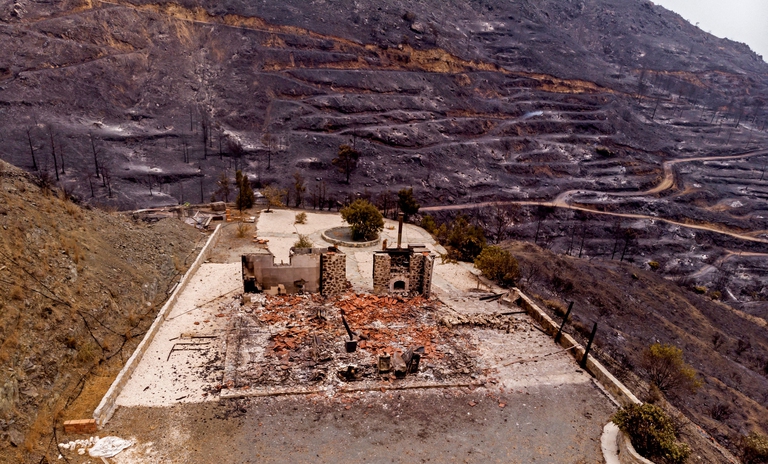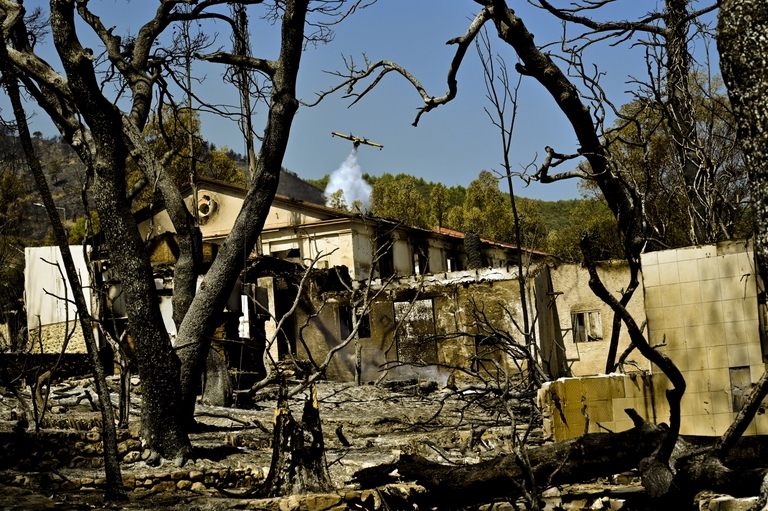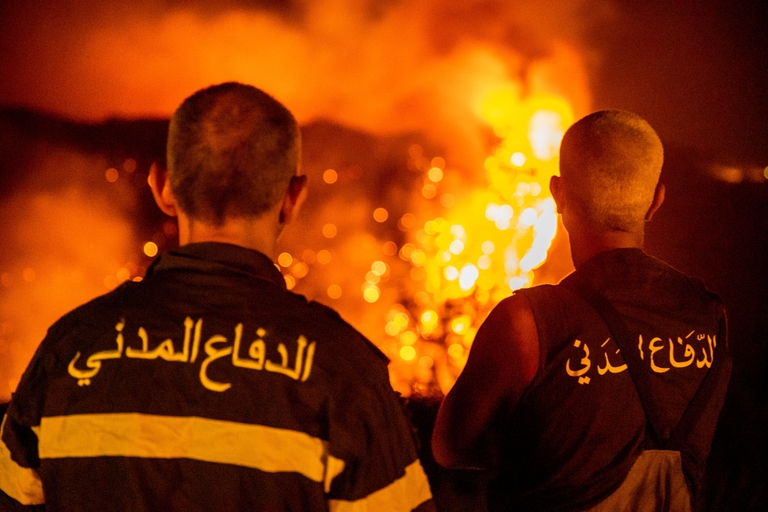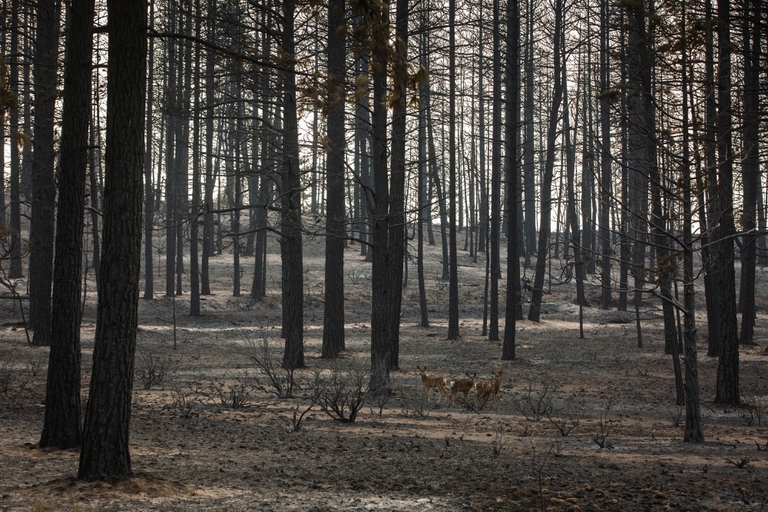
Canada’s wildfire season this year is impacting air quality way beyond the borders of the North American state, reaching as far as Europe.
From the Mediterranean to Finland, from Canada to Siberia, wildfires have wiped out thousands of hectares of land. The climate crisis also plays its part.
“It was red, like we were on Mars“. This is how someone from Oregon, in the United States – one of the states worst-hit by the recent wildfires – described the experience of being forced to flee their home to escape the flames.
For weeks now there has been almost constant news about violent wildfires from every corner of the world. Affected countries include Italy, Greece, Cyprus, Siberia, the United States, and Canada, to name but a few. People here are facing emergency situations, worsened by high temperatures, drought, and winds. Thousands of hectares of land have gone up in smoke, the number of evacuees keeps rising every day, as does the number of animals that weren’t able to escape the flames.
In Italy, the centre and the south of the country were the worst hit. In addition to Sardinia, where over 25,000 hectares of land have burned over the past ten days, the regions of Abruzzo, Molise, Puglia, and Sicily also saw firefighters and disaster relief volunteers fighting to keep the fires under control.
Greece is experiencing a similar fate, after having been hit by the worst heatwave of the past thirty years. The authorities went as far as to ask citizens to save electricity. The situation in Spain and France is similar, with efforts to take control of the blazes taking days.
More than one hundred wildfires have ravaged Turkey in the last few days, with many residents having to evacuate. At least six people lost their lives and many had to abandon their homes to the flames. Witnesses told press agency Reuters that it was “raining ash“. Wildfires are common in these regions, but the authorities have reported that the ones this year impacted much larger areas. To make matters worse, temperatures in the Antalya province could reach between 43 and 47 degrees next week.
In Lebanon, a blaze that started in the Akkar region spread so violently that it even reached the border with neighbouring Syria. Agriculture Minister Abbas Mortada told AFP that it was fuelled by the strong winds.
However, the fires didn’t just affect countries in the Mediterranean. Finland and Siberia were also forced to respond. Finland, in particular, faced its worst wildfire in the past fifty years, which spread through forests that had been rendered especially dry by the extraordinary heatwave that engulfed the country. 250 people and four helicopters were deployed from other parts of the country to try to control the fire that broke out in the Kalojoki River valley. The wind also played a part in this case, spreading the fire from tree to tree until it covered over 300 hectares. In Siberia, meanwhile, wildfires have swept away over one-and-a-half million hectares of vegetation.
In the meantime, over 500,000 hectares of land were burned between the US and Canada. Some of the worst-hit regions in July were California, Oregon, and British Columbia. “It was red, like we were on Mars,” said Sayyid Bey, one of the Oregon residents who had to abandon their homes to escape the flames. The fires spread so quickly that they engulfed all the trees around Sayyid’s home. Then the ash covered everything.
Despite the fact that the wildfire season is far from over, some countries have already started to estimate the extent of the damage that has been caused. In Sardinia, for example, the farming association Coldiretti estimated that it will take 15 years for the damage to be repaired, as long as no more wildfires as bad as this occur during that time. But with the climate crisis getting worse and worse, it’s hard to think it won’t happen again.
Siamo anche su WhatsApp. Segui il canale ufficiale LifeGate per restare aggiornata, aggiornato sulle ultime notizie e sulle nostre attività.
![]()
Quest'opera è distribuita con Licenza Creative Commons Attribuzione - Non commerciale - Non opere derivate 4.0 Internazionale.
Canada’s wildfire season this year is impacting air quality way beyond the borders of the North American state, reaching as far as Europe.
Some of the forests in the UNESCO Heritage list are “ill”. We discussed this with Elena Osipova from the IUCN and Giorgio Vacchiano from SISEF.
Wildfires in the US have caused over 30 deaths and destroyed 2 million hectares so far. The tragedy became political when Trump visited California.
A report by Ember explains that in 2025 electricity generation from renewables (solar, wind and hydropower) surpassed that from fossil fuel sources.
The Tyler Prize, considered the “Nobel Prize for the Environment,” has been awarded to Toby Kiers, an American biologist working in Amsterdam.
Belgium is one of the countries most exposed to climate change. Dune–dikes are a solution to curb sea-level rise.
Between October 2024 and September 2025, the average temperature in the Arctic was 1.6 degrees Celsius higher than during the 1991–2020 period.
Undeclared conflicts of interest, paid authors, lack of transparency: one of the most cited studies on glyphosate, published in 2000, has been retracted.
The list of human and animal victims of the Australia wildfires keeps growing – one species might already have gone extinct – as the smoke even reaches South America.











